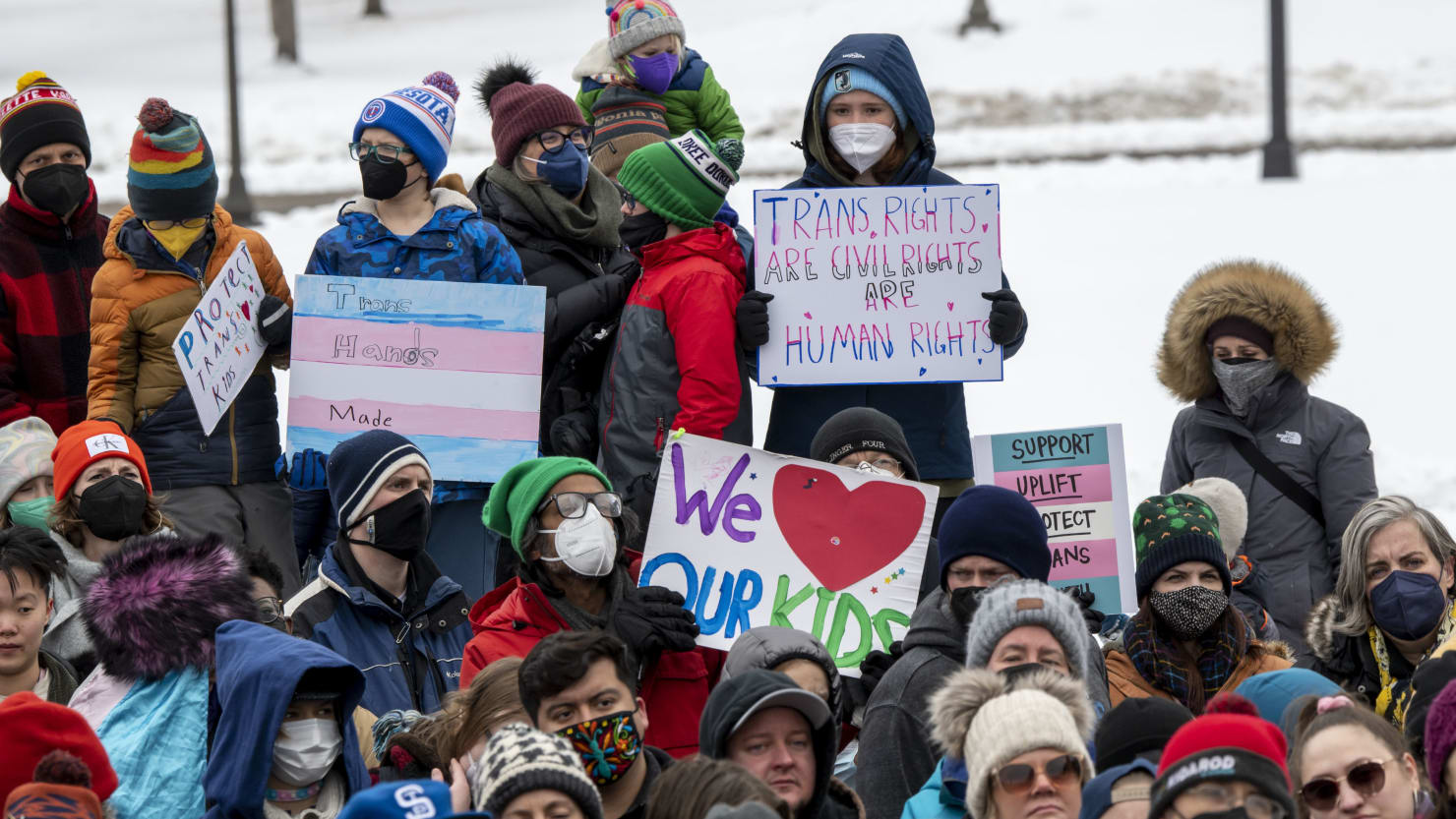Utah Gov. Spencer Cox has signed into law a bill that will place an indefinite pause on hormone therapy and puberty blockers and ban gender-affirming surgeries for trans minors. The move coincides with a growing number of states considering and implementing laws to restrict access to gender-affirming health care for trans youth, and it represents a seeming reversal for Cox, who just last year vetoed a law that banned trans athletes from participating in girls sports.
Cox said in a statement Saturday that the new law was spurred by a desire to wait for “more and better research” to determine the long-term consequences of hormone-replacement therapy, puberty blockers, and gender-affirming surgeries. Such legislation is not new, particularly in conservative states: In 2022, The Williams Institute at the UCLA School of Law estimated that nearly 60,000 transgender youth were at risk of losing access to gender-affirming health care due to state bans and policies.
Studies overwhelmingly show that trans people who access desired forms of gender-affirming care report more positive outcomes and that the risks pale in comparison to the benefits of receiving potentially lifesaving treatment. Additionally, major medical organizations including the American Medical Association oppose restrictions on gender-affirming health care, which the organization calls “medically necessary.”
“The reality is that gender-affirming medical care for trans youth is not controversial within mainstream medicine,” Jack Turban, a child and adolescent psychiatry researcher at the University of California San Francisco, told the Texas Observer in 2022. “There is broad consensus from all major medical organizations that legislation outlawing it is dangerous.”
The body of research backing up the benefits of gender-affirming care has grown over the past decade to include, critically, longitudinal studies that track patients over time and follow up to gauge long-term effects of this medical care. A 2022 study published in JAMA Network Open found that after a year of receiving gender-affirming care, which included puberty blockers and hormone therapy, trans and nonbinary youth had 60 percent lower odds of moderate or severe depression and 73 percent lower odds of self-harm and suicidal thoughts than those who did not receive such care.
“Our findings have important policy implications, suggesting that the recent wave of legislation restricting access to gender-affirming care may have significant negative outcomes in the well-being of [trans and nonbinary] youths,” the authors wrote in the study.
One of the largest and longest studies in the field to date was published in The New England Journal of Medicine on Jan. 19. Researchers followed more than 300 trans and nonbinary young people in the United States for two years, finding that gender-affirming hormone therapy decreased participants’ depression and anxiety symptoms, and increased their satisfaction with life. In an accompanying editorial, researchers who were not involved in the study wrote that it provided evidence that puberty blockers and gender-affirming hormones are an “effective and safe” approach to treating trans youth.
The Human Rights Campaign condemned the bill’s passage on Friday, with State Legislative Director and Senior Counsel Cathryn Oakley calling the legislation “discriminatory” and “harmful” to the state’s transgender youth.
“Medical decisions are best left to medical experts and parents or guardians, not politicians without an ounce of medical training acting as if they know how to raise and support our children better than we do,” Oakley said in a statement.
Lawmakers say they expect legal challenges to the law, which may pause it from affecting trans youth seeking care. The law went into effect immediately for new patients.
This post originally appeared on and written by:
Maddie Bender
The Daily Beast 2023-01-28 22:01:00

